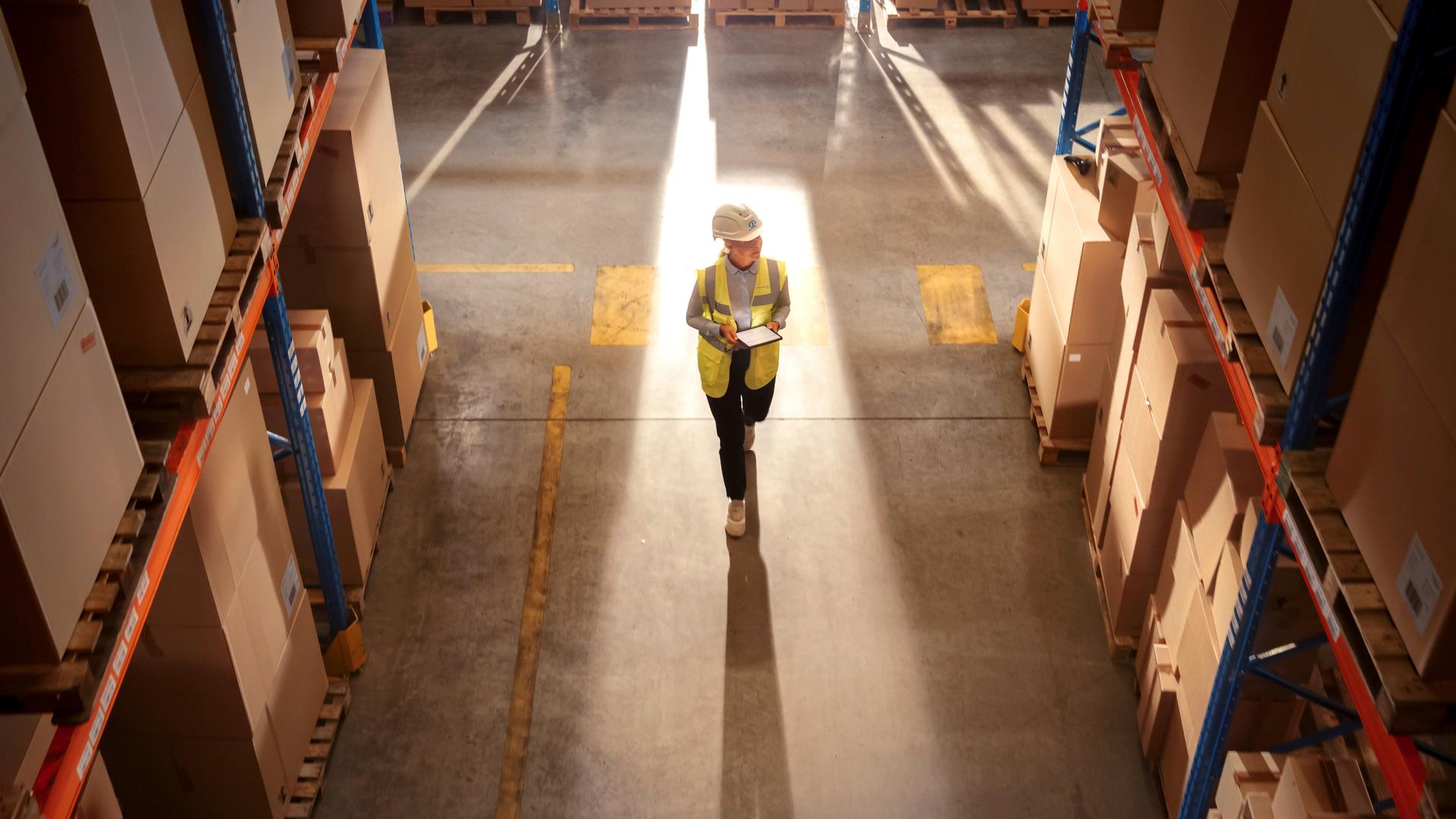The logistics industry is undergoing a significant transformation, driven by the integration of cutting-edge artificial intelligence (AI) technologies. This shift is not just a trend but a revolutionary change that is reshaping how logistics operations are managed, enhancing efficiency, and driving innovation. Our commitment to excellence ensures that we consistently deliver superior service to our clients while also promoting environmentally friendly practices. In this week’s article, we delve deep into the transformative power of AI in the logistics sector, exploring its myriad benefits, diverse applications, and the promising future it holds. Join us as we uncover how AI is not only streamlining operations but also paving the way for a more efficient and sustainable logistics industry.
The role of AI in logistics
Artificial intelligence involves the development of algorithms and systems capable of performing tasks that typically require human intelligence. In logistics, AI is utilized to analyze vast amounts of data, automate processes, and make informed decisions that enhance operational efficiency and reduce costs.
Automated Planning and Scheduling:
-
Route Optimization: AI algorithms analyze traffic patterns, weather conditions, and historical data to determine the most efficient routes for deliveries. This optimization reduces fuel consumption, minimizes delivery times, and lowers operational costs.
-
Dynamic Scheduling: AI-powered systems can dynamically adjust delivery schedules in real-time based on current conditions and constraints. This flexibility ensures that logistics operations remain efficient and responsive to unexpected changes.
Predictive Maintenance:
-
Vehicle Health Monitoring: AI systems can predict when a vehicle is likely to require maintenance by analyzing data from sensors and historical maintenance records. This proactive approach reduces downtime and maintenance costs, ensuring that vehicles are always in optimal condition.
-
Equipment Maintenance: Similar to vehicle monitoring, AI can predict maintenance needs for warehouse equipment, such as forklifts and conveyor belts. By preventing equipment failures, logistics operations can continue smoothly without disruptions.
Improving supply chain visibility
Real-Time Tracking:
-
Shipment Monitoring: AI enables real-time tracking of shipments, providing visibility into their location and condition. This transparency allows logistics managers to monitor the progress of deliveries and make adjustments as needed to avoid delays.
-
Inventory Management: AI-powered systems track inventory levels in real-time, ensuring that stock levels are optimized to meet demand without overstocking. This balance reduces holding costs and minimizes the risk of stockouts.
Demand Forecasting:
-
Accurate Predictions: AI uses historical sales data, market trends, and other relevant factors to predict future demand accurately. This forecasting helps logistics companies plan their inventory and resources more effectively, ensuring that they can meet customer demand without unnecessary waste.
-
Seasonal Adjustments: AI systems can adjust forecasts based on seasonal trends and events, allowing logistics companies to prepare for fluctuations in demand and maintain optimal inventory levels throughout the year.
Enhancing customer experience
Personalized Services:
-
Customer Preferences: AI analyzes customer data to understand individual preferences and tailor services accordingly. This personalization can include preferred delivery times, communication channels, and product recommendations, enhancing the overall customer experience.
-
Proactive Communication: AI systems can send automated notifications to customers regarding the status of their deliveries, including any potential delays or changes. This proactive communication builds trust and keeps customers informed throughout the delivery process.
Efficient Returns Management:
-
Streamlined Processes: AI can automate the returns process, making it easier for customers to return products and for logistics companies to manage returns efficiently. This automation reduces the time and cost associated with handling returns, improving customer satisfaction.
-
Fraud Detection: AI systems can identify patterns that may indicate fraudulent returns, helping logistics companies prevent losses and ensure the integrity of their operations.
Driving sustainability
Optimized Resource Utilization:
-
Energy Efficiency: AI systems can optimize energy usage in warehouses and transportation by analyzing consumption patterns and identifying areas for improvement. This optimization reduces energy costs and minimizes the environmental impact of logistics operations.
-
Waste Reduction: AI-powered inventory management ensures that stock levels are optimized to reduce waste. By minimizing overproduction and overstocking, logistics companies can reduce their carbon footprint and contribute to a more sustainable supply chain.
Sustainable Transportation:
-
Route Optimization: As mentioned earlier, AI optimizes delivery routes to reduce fuel consumption and emissions. This efficiency is crucial for logistics companies aiming to meet their sustainability goals and comply with environmental regulations.
-
Fleet Management: AI can also manage electric and hybrid fleets, optimizing charging schedules and routes to maximize efficiency and minimize environmental impact. This approach supports the transition to more sustainable transportation methods.
Future of AI in logistics
The future of AI in logistics looks promising, with continued advancements expected to drive further efficiencies and innovations. Some of the anticipated developments include:
Advanced Robotics:
-
Autonomous Vehicles: AI-powered autonomous vehicles are expected to play a significant role in logistics, enabling self-driving trucks and drones to handle deliveries more efficiently. These advancements will reduce the need for human intervention and increase delivery speed and accuracy.
-
Warehouse Automation: Advanced robotics powered by AI will further automate warehouse operations, from picking and packing to sorting and loading. This automation will enhance productivity and reduce operational costs.
Enhanced Data Analytics:
-
Big Data Integration: AI will continue to leverage big data to provide deeper insights into logistics operations. By integrating data from various sources, AI can offer more accurate predictions and recommendations, improving decision-making and operational efficiency.
-
Machine Learning: Continuous advancements in machine learning will enable AI systems to learn and adapt over time, becoming more effective in optimizing logistics processes and addressing challenges as they arise.
Artificial intelligence is transforming logistics management by enhancing efficiency, improving supply chain visibility, and driving sustainability. We are committed to leveraging AI technologies to optimize our logistics operations and deliver exceptional value to our customers. By embracing AI, we are not only improving our operations but also contributing to a more sustainable and efficient future for the logistics industry.









